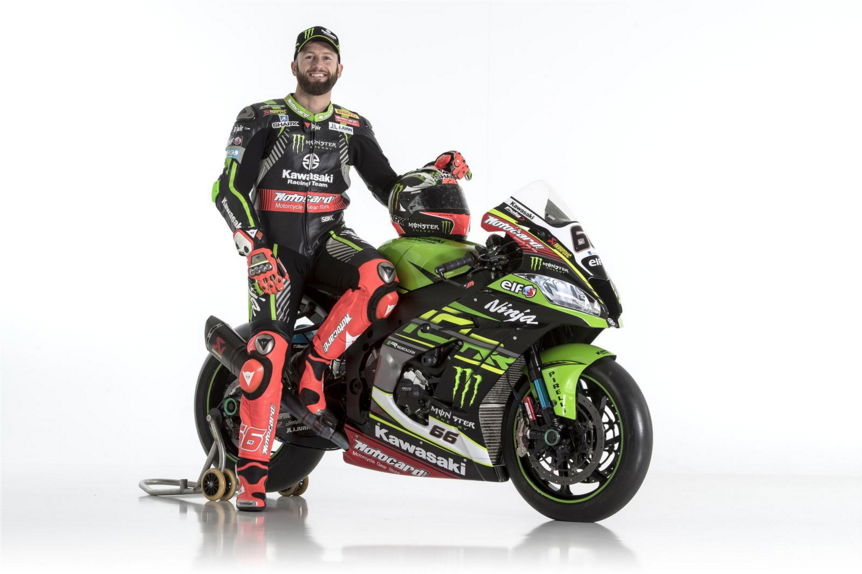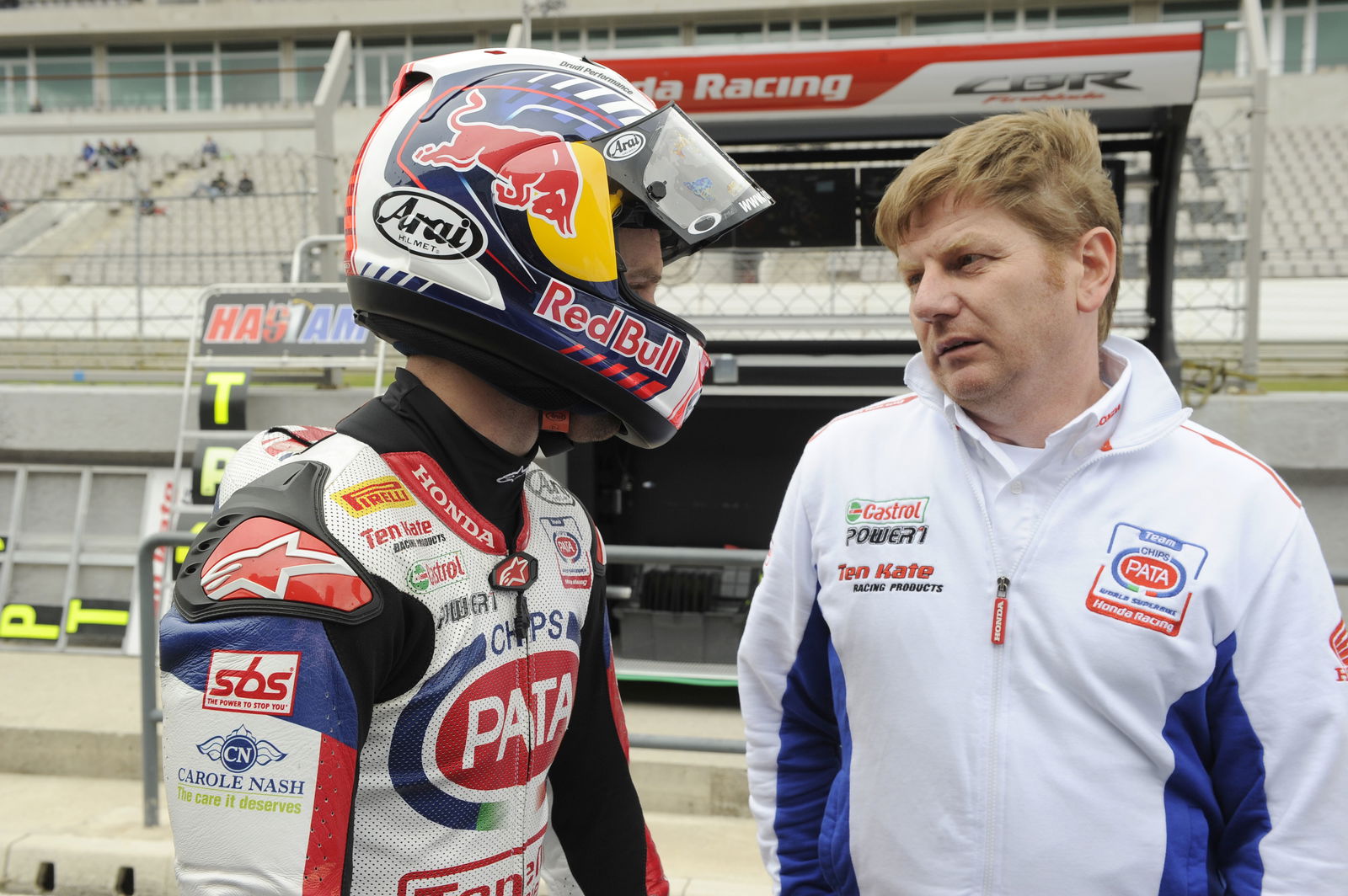WorldSBK: Kawasaki chief: Regulation changes 'not fair, not clever'
Dorna and the FIM’s efforts to balance the 2018 World Superbike field have come in for criticism from Pere Riba, who believes the decision to further limit the rev limits of successful machines through the year “are not fair, and not clever.”
Riba, instrumental in Jonathan Rea’s three World Superbike titles in his role as crew chief, expressed his pleasure at Kawasaki’s preparations for 2018 but voiced concerns regarding regulation changes that have impacted the class for the season ahead.

Dorna and the FIM’s efforts to balance the 2018 World Superbike field have come in for criticism from Pere Riba, who believes the decision to further limit the rev limits of successful machines through the year “are not fair, and not clever.”
Riba, instrumental in Jonathan Rea’s three World Superbike titles in his role as crew chief, expressed his pleasure at Kawasaki’s preparations for 2018 but voiced concerns regarding regulation changes that have impacted the class for the season ahead.
Kawasaki was required to lower the rev limit on its ZX-10R from 15,200RPM to 14,100 for 2018, a change that has done little to slow its riders down throughout preseason testing.
However, should Rea, team-mate Tom Sykes, or indeed any other Kawasaki-mounted rider dominate the opening three rounds, further machine penalties will follow, with a further drop of 250RPM enforced - a penalty that could be repeated at later points in the year.
Riba was keen to stress his favour of regulations that would bring the field closer together, but feels this method, whereby Kawasaki still appears to be unaware of the specifics of the rules, is “not nice.”
“Of course, we are very proud of the job everyone is doing and, honestly speaking, the only worry is what’s going to happy with Dorna and the FIM,” Riba said in recent conversation with Crash.net.
“I’m a fan of Superbike. I’ve been in this championship always. I raced, am working here and have always been here. I really want a healthy championship, a growing championship, equality and nice races. I’m the first one [that wants that].
“In my opinion, to balance technically is much more difficult in Superbike than in MotoGP. In MotoGP it’s very easy because they are prototypes built from zero. The best technology companies, the best knowledge, the best understanding; whatever.
“But in Superbikes, you have seven different manufacturers - this means the starting point is seven [bikes]. To equal them technically, f***ing hell, it’s so difficult. I’m not saying it’s not possible, but it’s so difficult. This means they go in the direction of revs.
“It’s easy to understand why our bike is one of the most affected. I agree. We will compensate. But what is not nice, is the system points. The worst is if you see the rules they say, ‘After three races, depending on your results, we will penalise you 250 [revs].’ If you make fastest laps, pole positions and win, you can also be penalised. But they don’t give you a formula.
“If they gave me a formula, and they said, ‘This is one point and this is another and if you get ten points then whatever’, then you can make some strategy. You can talk with the rider, and say, ‘OK, Johnny, don’t do pole position. Don’t win this race. Don’t lead the race – wait until the last lap.’
“Then other riders can also win. It is not nice like that because we are in a sport. This means, in my opinion, how everything has been managed is not fair and it’s not clever. This is my personal opinion.”
Riba feels Kawasaki is essentially being punished for success, something that would not fly in the MotoGP class.
“A small example: go to MotoGP and tell Valentino, Marc and everybody, ‘If you win too much, you are going to get penalised because you are too good.’ Go and tell them and you will see the answer,” he said.
“They’ll say, ‘OK, I’ll stay at home.’ I’m sorry. I repeat: I’m not against balancing the championship. But there are many ways to make the balance and some of them are for my understanding a little bit out of the limits.”
Another issue with the enforcement of further rev ‘penalties’ through the year, he feels, is that it will apply to all Kawasakis on the grid – an implementation that may seriously hamper the potential of, for instance, Puccetti Racing’s Toprak Razgatlioglu or Pedercini Racing’s Yonny Hernandez.
“It’s very difficult because Kawasaki, for example, Jonathan and Tom are really fast. I hope that after three races we will have 250RPM less. It’s not only for them. It’s for the rest of the guys. They say you want to balance it.
“But what do they want to balance,” Riba asked. “They said they want to help the small teams. They make a price cap for the swingarm. Then if they win, another six Kawasakis will have their performance lowered. Is this help?”
Does he foresee a change in results as a consequence of the new regulations? “Not in the first events,” he said. “But, it depends on what they decide to do. When I say they, I mean Dorna and the FIM. In the rules, when you talk about points, there is a point when Dorna can add any point [they want].
“At the end of the day the regulations and equalling the championship – everything comes from one guy: Jonathan. He’s the best. The skills he has; the way he manages. He’s like Messi in football. What can you do? Messi is Messi. He’s the best in the world. Even if Ronaldo wants to be close, he can’t do it. We’re lucky that we have Messi.”

